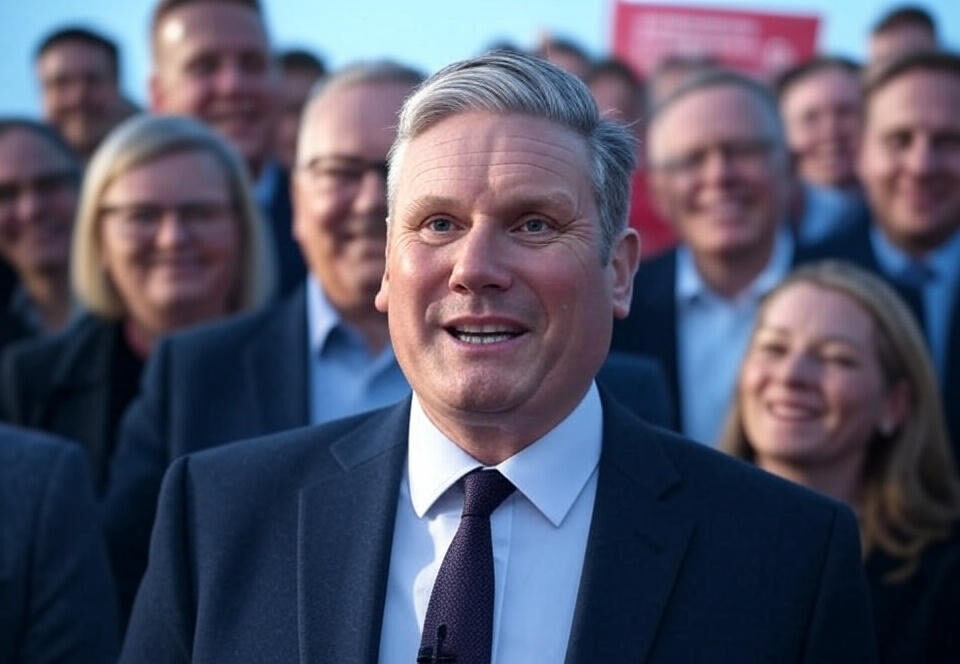In a dramatic political shift, the Labour Party, under the leadership of Keir Starmer, has won a resounding victory in the UK general elections, bringing an end to 14 years of Conservative governance. This electoral outcome marks a new era for British politics, with Labour securing a major parliamentary majority and promising a fresh direction for the country.
A Historic Comeback for Labour
Labour’s victory is one of the most decisive in recent British history. After spending more than a decade in opposition, Starmer’s party has succeeded in rebuilding public trust, broadening its appeal beyond its traditional base. The party campaigned heavily on restoring economic stability, revitalizing public services, and bringing integrity back to politics themes that resonated deeply with a public fatigued by political scandals, austerity measures, and economic stagnation.
According to the BBC, Labour secured over 410 seats, far surpassing the 326 needed for a majority in the 650 seat House of Commons. In contrast, the Conservative Party suffered one of its worst electoral defeats, winning just around 121 seats, down from the 365 it held after the 2019 election under Boris Johnson.(BBC News, General Election Results 2025)
Keir Starmer: From Barrister to Prime Minister
Keir Starmer, who became Labour leader in 2020 following the party’s defeat under Jeremy Corbyn, has now become the UK’s new Prime Minister. A former human rights lawyer and Director of Public Prosecutions, Starmer rebranded Labour as a moderate, centre left party, distancing it from the more radical policies of the Corbyn era.(Globedge).
His leadership focused on competence, transparency, and a return to “sober politics,” a sharp contrast to the chaotic leadership struggles and controversies that plagued the Conservatives in recent years including the short-lived premiership of Liz Truss and the scandal-hit tenure of Boris Johnson.
Starmer stated in his victory speech:
“Change begins now. We will rebuild trust in our institutions, drive growth with fairness, and restore hope to every corner of the UK.”
Conservative Collapse
The Conservative Party’s dramatic fall reflects deep voter dissatisfaction. After holding power since 2010, the Tories faced growing criticism over economic mismanagement, particularly the cost of living crisis, rising inflation, and underfunded public services. The fallout from Brexit, ongoing NHS struggles, and a housing affordability crisis also eroded public confidence.
The party also faced internal divisions and leadership changes from David Cameron to Rishi Sunak each failing to maintain long term stability. Sunak, who conceded defeat early on election night, said:
“The British people have delivered a clear message. I take responsibility for this result, and I will not continue as party leader.”

What Comes Next?
The new Labour government is expected to prioritize:
- Reviving the NHS with increased funding and workforce reforms
- Economic recovery with investments in green energy and infrastructure
- Education reforms to address inequality and access
- A re-evaluation of Brexit arrangements, though Starmer has ruled out rejoining the EU
Starmer also promised a “mission led government,” with clear goals focused on long-term national renewal rather than short-term gains.
A Turning Point for Britain
This election has not only redefined the balance of power in Westminster but also reflects a broader shift in public sentiment. Voters demanded competence, stability, and ethical governance. With Labour’s strong mandate, the next few years will be crucial in determining whether Starmer’s leadership can deliver lasting change.
While challenges remain from inflation to geopolitical tensions the UK now embarks on a new political chapter with a different vision for its future.

